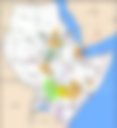Featured Publications

Technical Statement from the 72nd Greater Horn of Africa Climate Outlook Forum (GHACOF72)
March to May (MAM) constitutes an important rainfall season, particularly in the equatorial parts o…

Regional Framework for Climate Services (RFCS) for Great Horn of Africa
The Regional Framework for Climate Services for the Greater Horn of Africa (RFCS-GHA) is a strategi…

The South Sudan Roadmap on Anticipatory Action 2025-2030
The South Sudan Roadmap on Anticipatory Action 2025-2030 (SSRAA) represents a major milestone in th…

IGAD Regional Focus of the 2025 Global Report on Food Crises
- In five countries with comparable data since 2016 (Kenya, Somalia, South Sudan, the Sudan and Ugand…
All Publications
Filter by Publication Type
Filter by Service
Filter by Project
Filter by Year
Showing 192 results

Livelihoods, Resilience & Migration In the Context of Slow Onset Climate Change in the IGAD Region
Overall, participants in this study understood and attributed worsening climatic conditions to:
- Ordinary cyclicality – a bad year must be followed by a good one
- Supernatural forces
- Degradations brought to the land.
However, for some …

Climate Baselines - Fact Sheet
The Climate Baseline Factsheet summarises the past rainfall and temperature trends in the Eastern Africa from 1981 to 2010.

Report on the installation of automatic weather stations in Somalia
Down2Earth project aims to expand remote sensing and in situ observation capabilities to improve preparedness to water scarcity within Horn of Africa drylands (HAD). By expanding station networks, better preparedness to future risks to water …

Participatory Scenario Planning (PSP) Training and Implementation for Machakos County, Kenya, for OND 2023 Rainfall season
The first PSP training and demonstration in Machakos County was supported by the Intra-ACP Climate Services and Related Applications programme (ClimSA). The objective of the workshop was to develop and implement adaptation strategies and measures …

Comparative report on flood displacement mitigation policies
In the IGAD region, floods have become increasingly frequent and intense due to climate variability and change, resulting in 10.7 million new displacements between 2008 and 2022, related to 291 flood disasters reported (IDMC Database, …

Regional water cycle sensitivity to afforestation: synthetic numerical experiments for tropical Africa
Afforestation as a climate change mitigation option has been the subject of intense debate and study over the last few decades, particularly in the tropics, where agricultural activity is expanding.
However, the impact of such …

Evaluation of CMIP6 historical simulations over IGAD region of Eastern Africa
The Accuracy of model simulations is critical for climate change and its socio-economic impact. This study evaluated23 Global climate models participating in the Coupled Model Intercomparison Project phase 6 (CMIP6). The main objective was to …

Summary for Decision Makers, October to December 2023 Season
Download our latest Summary for Decision Makers with impacts and advisories for the following sectors:
- Disaster Risk Management
- Agriculture and Food Security
- Water and Energy
- Health and nutrition
- Livestock
How should I use seasonal forecasts? …

New Functionalities and Regional/National Use Cases of the Anomaly Hotspots of Agricultural Production (ASAP) Platform
The Anomaly Hotspots of Agricultural Production (ASAP) Decision Support System was launched operationally in 2017 to provide timely early warning information on agricultural production based on Earth observation and agro-climatic data in an open and …
